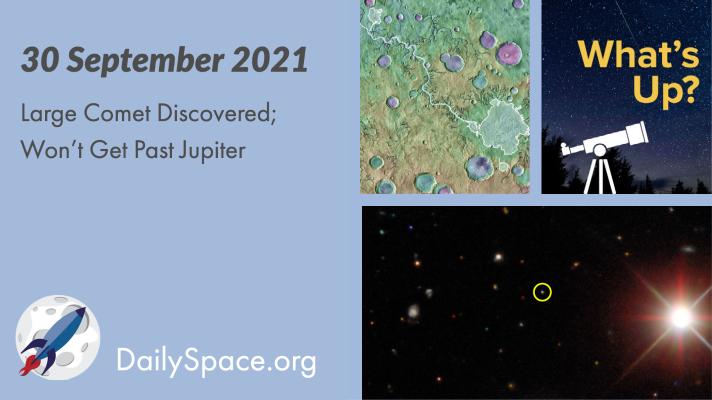
Oct 1, 2021 | Comets, Daily Space, ESA, Exoplanets, Jupiter, Mars, Moon, Sky Watching
Contrary to recent clickbait headlines, a recently discovered comet that likely originated in the Oort Cloud will not be coming near Earth. The closest point of the icy body’s orbit is between Saturn and Jupiter. Plus, how floods shaped Mars, how microbes helped clover grow, and this week’s What’s Up.
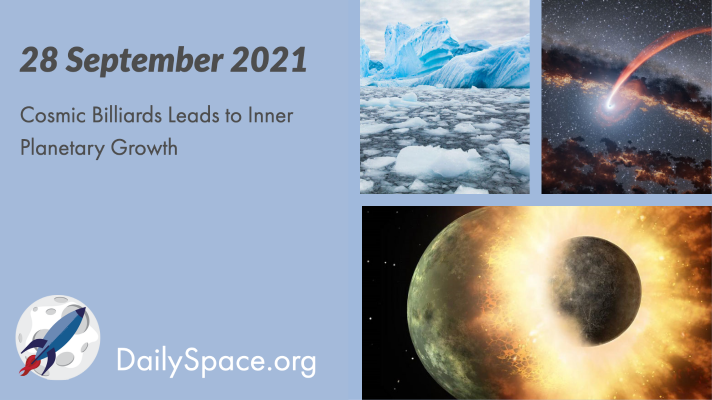
Sep 29, 2021 | Black Holes (Stellar), Climate Change, Daily Space, Earth, Mars, Mercury, Moon, Our Solar System, Stars, Venus
The inner solar system was a wild and wooly place as the planets were forming, and new research shows that the collisions that formed Earth and Venus were likely of the hit-and-run variety. Plus, polar ice loss warps the planet, and a black hole eats a star.
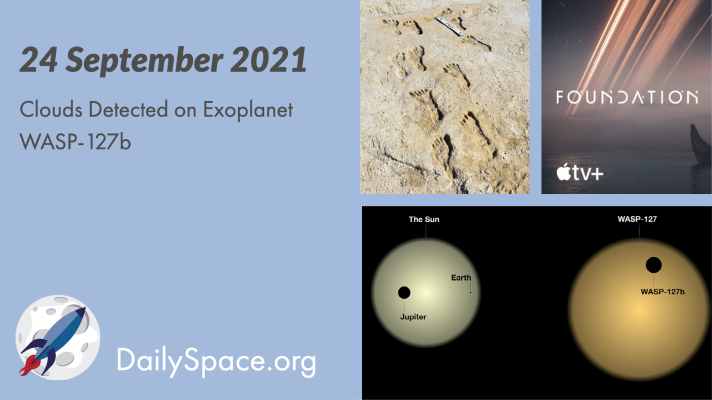
Sep 27, 2021 | Daily Space, Earth, Exoplanets, Galaxies, Mars, Perseverance, Review
Using data from the Hubble Telescope and the ESO’s Very Large Telescope in Chile, a team of scientists have successfully detected clouds on an exoplanet and even measured their altitude. Plus, fossil evidence of humans’ arrival in North America and a review of the first episode of “Foundation” on Apple TV+.
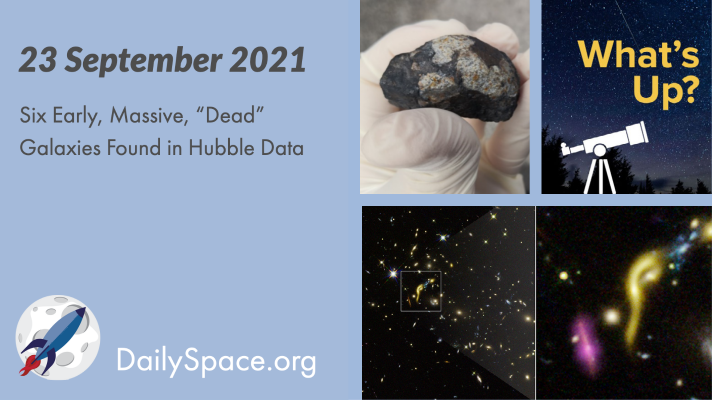
Sep 24, 2021 | Asteroids, Daily Space, Earth, Galaxies, Mars, Moon, Neptune, Observatories, Rovers, Sky Watching, Supernovae, Uranus
While searching for objects deep in the universe’s history, at about three billion years of age, researchers found six massive but “dead” galaxies in Hubble and ALMA data, a strange finding for a time period known for prolific star birth. Plus, planetary science from the EPSC2021 conference and this week’s What’s Up.
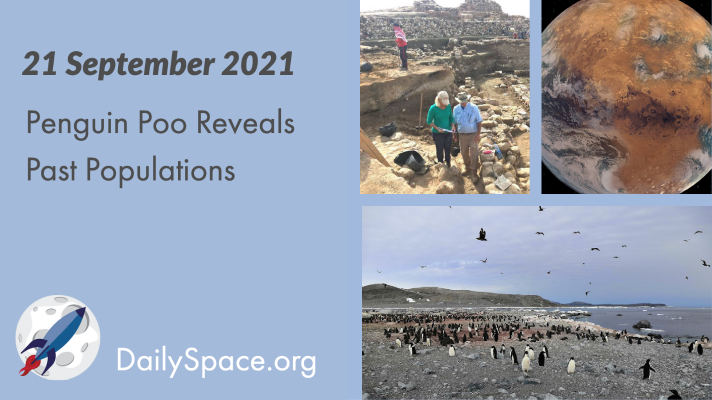
Sep 22, 2021 | Asteroids, Climate Change, Daily Space, Earth, Mars
A study of the feces of Adélie penguins from Inexpressible Island on the Ross Sea of the Antarctic sheds new light on how the avian population may survive during climate change. Plus, the possibility for life on Mars and understanding destructive meteors.
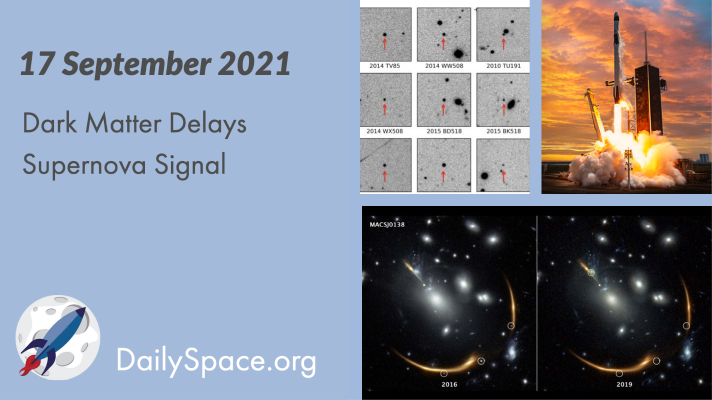
Sep 20, 2021 | Asteroids, Climate Change, Comets, Cosmology, Crewed Space, Daily Space, Dark Matter, Earth, Galaxies, Review, Space China, Spacecraft, SpaceX, Supernovae
A supernova first observed in 2016 will be replayed in a few years because of the light’s journey through a galaxy cluster and how dark matter gravitationally warps space-time. Plus, inactive centaurs, a Scottish ice wall, and a review of “Countdown: Inspiration4 Mission to Space”.








 We record most shows live, on Twitch. Follow us today to get alerts when we go live.
We record most shows live, on Twitch. Follow us today to get alerts when we go live.